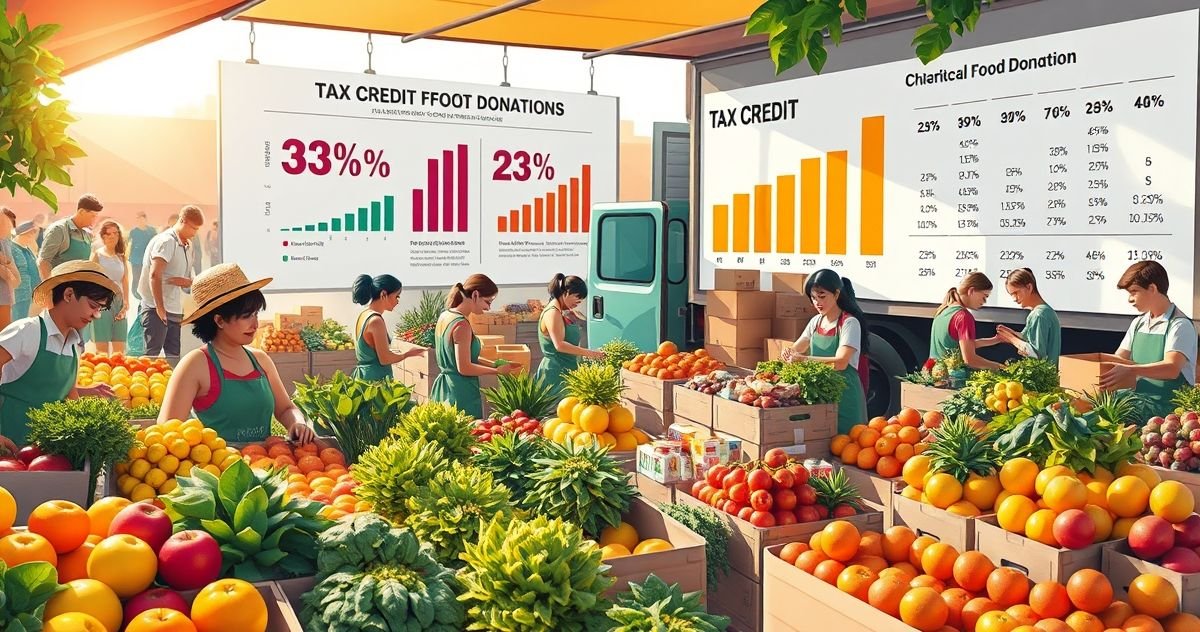Understanding the Food Waste Donation Tax Credit
In a world that grapples with both overproduction and scarcity of resources, the Food Waste Donation Tax Credit emerges as a pivotal tool. This tax incentive encourages businesses, particularly those in the food industry, to donate surplus edible food instead of discarding it. By doing so, it promotes environmental sustainability, helps mitigate hunger, and provides financial relief to businesses through tax savings.
What is the Food Waste Donation Tax Credit?
The Food Waste Donation Tax Credit is a fiscal policy measure designed to create a win-win scenario for both businesses and communities. Businesses that qualify for this credit can donate their excess, edible food to approved charitable organizations and, in return, receive a percentage of the donation’s fair market value as a tax credit. This initiative aims to decrease the amount of food waste sent to landfills while simultaneously addressing food insecurity issues in society.
Primary Purpose of the Credit
The primary goal of this tax credit is twofold. Firstly, it incentivizes businesses to contribute to food security efforts by donating food rather than disposing of it. Secondly, it reduces the environmental impact associated with food waste, such as the emission of greenhouse gases from decomposing food in landfills.
Key Features and Components
- Eligibility: Businesses such as grocery stores, restaurants, and food producers are typical beneficiaries of this credit. They must donate to registered and qualifying non-profit organizations.
- Valuation: The credit is often calculated as a percentage of the fair market value of the donated food.
- Documentation: Businesses must keep detailed records of their donations, including the type and quantity of food donated, the date of donation, and the recipient organization’s details.
- Compliance: Compliance with local, state, and federal guidelines is necessary to claim the credit.
Filing and Compliance Requirements
To take advantage of the Food Waste Donation Tax Credit, businesses must adhere to specific filing and compliance requirements:
- Maintaining Accurate Records: Proper documentation is crucial. Businesses need detailed records of all transactions related to their food donations. These records should include the date of donation, type, and quantity of food, valuation of donations, and information on the receiving non-profit organization.
- Filing Specific Forms: Depending on the jurisdiction, businesses may be required to submit specific forms when filing for this tax credit. It is often necessary to provide evidence of the donation along with tax filings.
- Meeting Safety Standards: Donated food should meet safety criteria, verifying its suitability for consumption. Compliance with health regulations is mandatory.
Penalties for Non-Compliance
Failing to comply with the requirements for claiming the Food Waste Donation Tax Credit can lead to serious repercussions:
- Disqualification: Non-compliance can result in disqualification from claiming the credit, which means businesses will not receive the anticipated financial relief.
- Fines and Legal Action: If businesses are found improperly valuing donations or failing to meet documentation requirements, they might face fines or legal actions.
- Back Taxes: In some cases, businesses might have to repay previously claimed credits along with penalties and interest.
Significance in Tax Resolution and Financial Compliance
The Food Waste Donation Tax Credit holds substantial significance in both financial strategy and environmental responsibility. Through this credit, businesses not only offset a portion of their tax liabilities, but also actively engage in community welfare programs. This participation can enhance a company’s public image and contribute to corporate social responsibility goals.
Moreover, this tax credit is an essential mechanism for businesses aiming to achieve financial efficiency. It encourages improved inventory management, leading to financial savings and minimized waste. In the broader spectrum of financial compliance, adherence to the credit’s requirements fosters disciplined record-keeping practices, which can generally enhance a business’s fiscal health.
In conclusion, the Food Waste Donation Tax Credit is more than just a tax benefit; it is a comprehensive approach to fostering economic, social, and environmental well-being. By understanding and appropriately utilizing this credit, businesses can play a vital role in addressing systemic food waste challenges while enjoying tangible fiscal advantages. This not only strengthens the financial standing of these businesses but also contributes significantly to building more resilient and sustainable communities.



